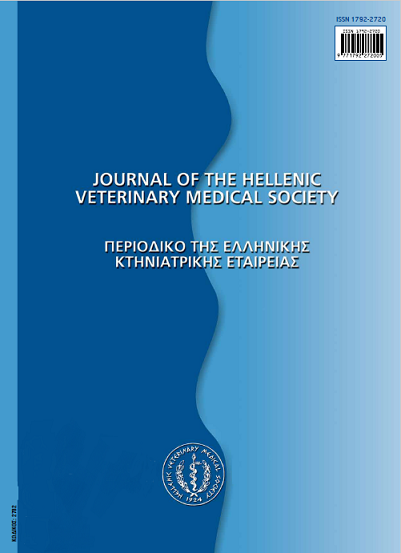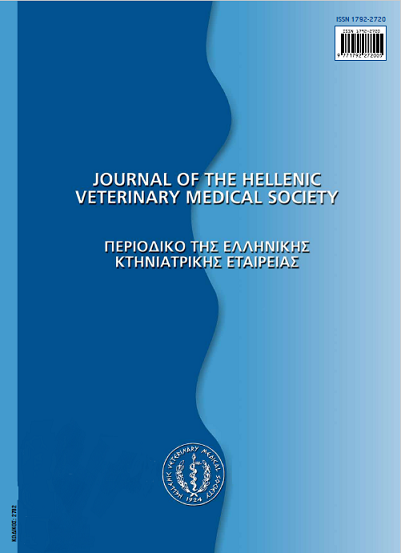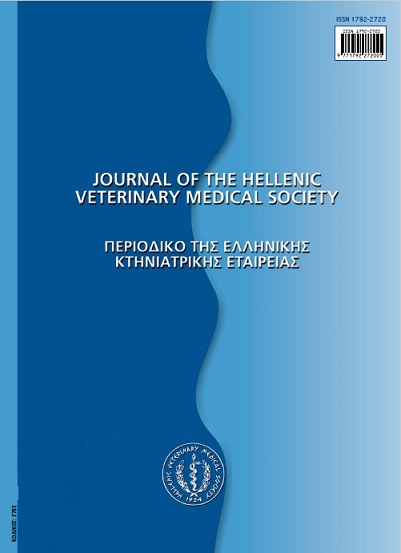Molecular screening for Blastocystìs sp. in canine faecal samples in Greece
Аннотация
Blastocystìs is an anaerobic parasitic microorganism which has been found in the intestinal tract of many vertebrates including humans and dogs. Recently, members of Blastocystìs sp. were classified into nine sub-types, based on phylogenetic trees derived from sequence analysis of the small sub-unit ribosomal RNA gene. The pathogenesis of Blastocystìs in the dog remains uncertain and the existence of pathogenic and non-pathogenic sub-types is under investigation. Feacal samples from 30 privately owned and 42 stray dogs, originated from central and northern Greece, were examined by both light microscopy and PCR assays for the detection of Blastocystìs sp. All samples were found to be negative by both assays. It seems that, in Greece, the dog is unlikely to be a "reservoir" of Blastocystìs sp., although a large scale epidemiologic study is needed to be carried out in order for more conclusive results to be drawn.
Article Details
- Как цитировать
-
SPANAKOS (Γ. ΣΠΑΝΑΚΟΣ) G., PAPADOGIANNAKIS (Ε. ΠΑΠΑΔΟΓΙΑΝΝΑΚΗΣ) E., KONTOS (Β. ΚΟΝΤΟΣ) V., MENOUNOS (Π. ΜΕΝΟΥΝΟΣ) P., VELONAKIS (Ε. ΒΕΛΟΝΑΚΗΣ) E., KOUTIS (Χ. ΚΟΥΤΗΣ) C., & VAKALIS (Ν. ΒΑΚΑΛΗΣ) N. C. (2017). Molecular screening for Blastocystìs sp. in canine faecal samples in Greece. Journal of the Hellenic Veterinary Medical Society, 62(3), 216–220. https://doi.org/10.12681/jhvms.14852
- Выпуск
- Том 62 № 3 (2011)
- Раздел
- Research Articles
Authors who publish with this journal agree to the following terms:
· Authors retain copyright and grant the journal right of first publication with the work simultaneously licensed under a Creative Commons Attribution Non-Commercial License that allows others to share the work with an acknowledgement of the work's authorship and initial publication in this journal.
· Authors are able to enter into separate, additional contractual arrangements for the non-exclusive distribution of the journal's published version of the work (e.g. post it to an institutional repository or publish it in a book), with an acknowledgement of its initial publication in this journal.
· Authors are permitted and encouraged to post their work online (preferably in institutional repositories or on their website) prior to and during the submission process, as it can lead to productive exchanges, as well as earlier and greater citation of published work.





